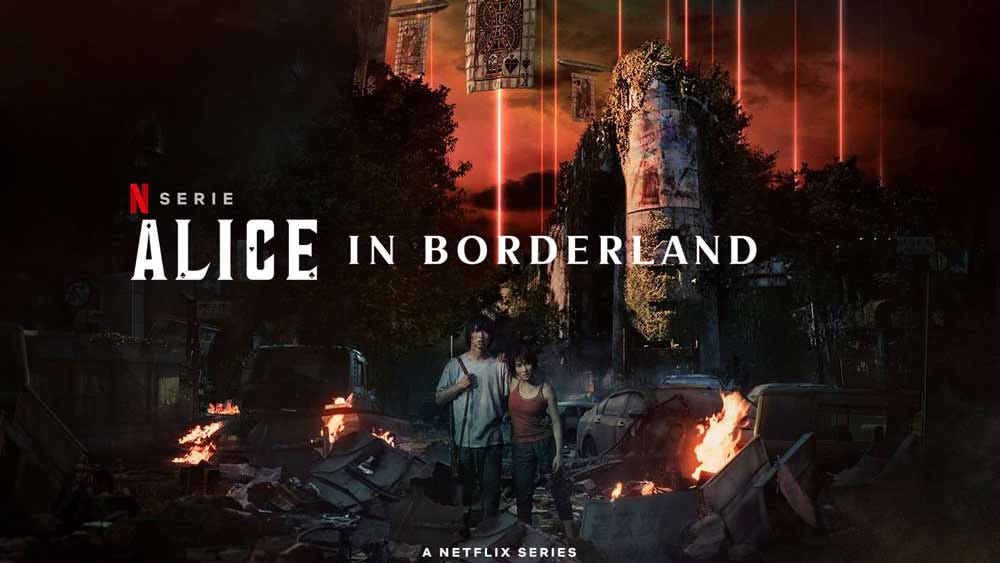"Alice In Borderland" and the batshit crazy search for the meaning of life.
A look at the wildly creative ambition, existential underpinnings and the Japanese ethos at play in the Netflix series, after finally finishing the second season (a third is in the works).
Most people haven’t even heard of or watched the Netflix Japanese series “Alice In Borderland,” so to lure you into a discussion on this strange, kinetic gem, here’s a spoiler-free trailer to stir your interest before I get started:
Yeah, so, that.
There’s a world in which I try to explain to you what “Alice In Borderland” is about, but it would just sound like I’d lost my mind or was typing on acid.
The biggest question isn’t what “Alice In Borderland” is but rather what the series clearly wants to be underneath all of the non-stop action of the kind you just witnessed.
It wants to be about meaning and purpose. Specifically, what are we doing in this world? Are there rules for how to live? Are we doing it right? And that’s in the real world, not the game world.
In S1, I believed that the series was, despite all odds, intent on explaining itself, as if it was waking from a loosely connected but mostly garbled dream and then somewhere in the process of the story trying to see the connections.
This was like jumping in to a moving car however, since the WTF nature of the concept (and what it might mean) is distracting enough before you add in the action and ultra-violence. Getting introspective seemed to me like it was always in the DNA of the series, but was an underdeveloped idea that began to make sense only after the characters and the story started to bloom.
As I watched that first season, understanding the story was clearly not the point of burning through it — witnessing some off-the-rails ambition turn into frenetic entertainment certainly was.
(Some of you might remember that I wrote a decent amount about S1 of “Alice In Borderland,” first with the Deep Dive: Netflix feature and then periodically in the Still Watching feature.)
Fundamentally the premise of the show is that a bunch of people — spotlight on Arisu (Kento Yamazaki) — suddenly find themselves inside a warped, unexplained world where they must play win-and-live or lose-and-die games of increasing levels of bloodshed and madness for no apparent reason.
Other than staying alive.
(If you’re thinking, “Oh, like ‘Squid Game” — yes, except “Alice In Borderland” came out a year before that.)
But what starts as something you might expect of a visually adroit manga (from Haro Aso) that is chasing Big Ideas with varying levels of clarity, eventually “Alice In Borderland” morphs into a series that gets unexpectedly thoughtful about its existentialism.
Keep reading with a 7-day free trial
Subscribe to Tim Goodman / Bastard Machine to keep reading this post and get 7 days of free access to the full post archives.








